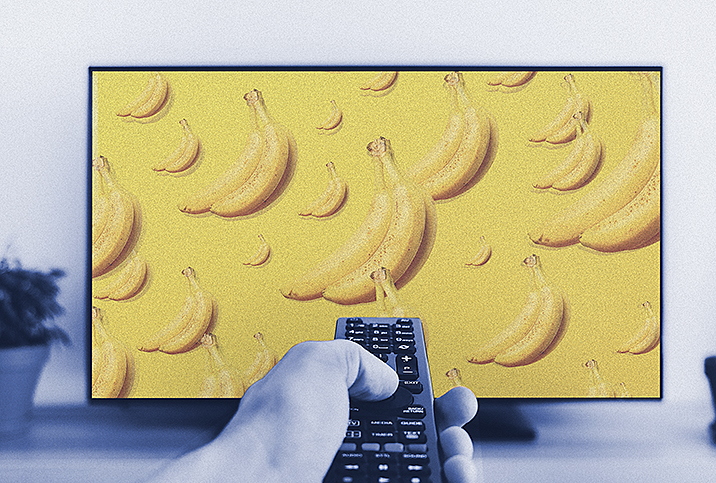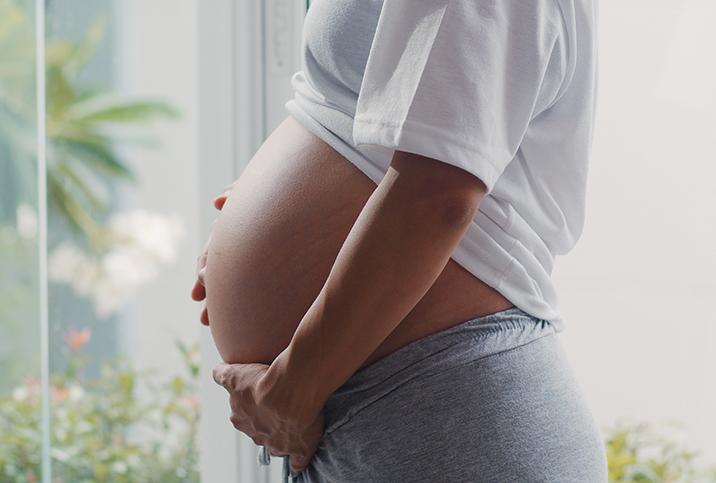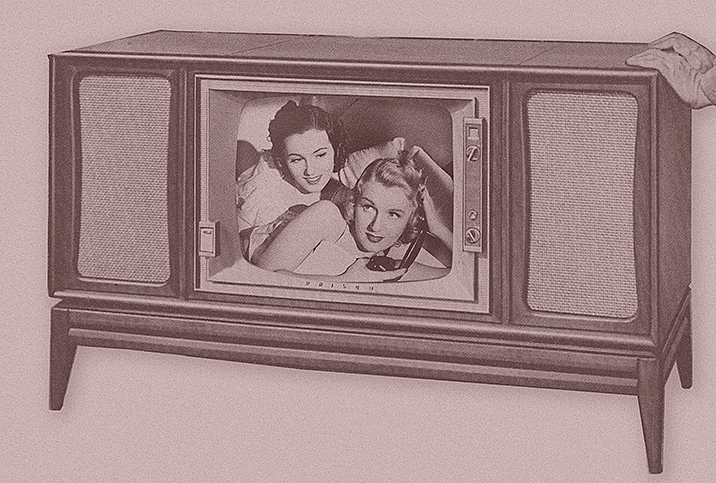Horror's Pregnancy Obsession Is Nothing New
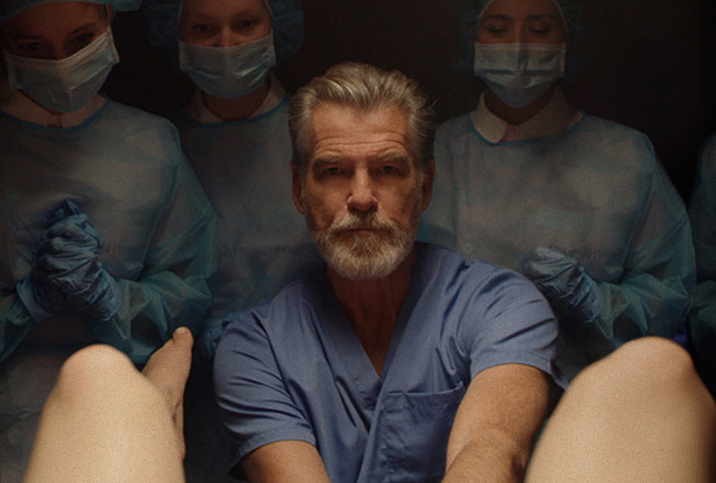
Pregnancy and childbirth are beautiful life events that can bring unparalleled happiness to a couple wanting to create a family. They can also be terrifying experiences ending in a bloody mess, making them perfect fodder for horror movies.
It's not for nothing that the chestburster scene in "Alien" still disturbs, suggesting birth gone wrong (although, curiously, out of a man), or that the maternal relationship between Sigourney Weaver's Ripley and the vengeful extraterrestrial creatures at the franchise's heart is weirdly moving, if chilling. Pregnancy can feel like you're infected with a parasite. One you love, sure, but one that might cause all sorts of complications, some of which can end your life.
But the masculine energy of pregnancy-phobic films such as "Alien" point to an uncomfortable truth: Almost all of these movies were made by men, and their terror reflects the anxieties of people who aren't capable of reproducing. These films project male fears onto women, who actually deal with the mentally and physically disturbing process of having a baby pulled out of you.
The original daddy kicking off the pregnancy-horror trend is undoubtedly Roman Polanski's "Rosemary's Baby," which saw Mia Farrow's Rosemary unwittingly give birth to the child of Satan. More than 50 years after its release, pregnancy horrors still follow in its path.
The latest in the long line is "False Positive," a Hulu Original film written by Ilana Glazer of "Broad City" fame. She also plays Lucy, a copywriter with a promising career married to Adrian (Justin Theroux), a befuddlingly handsome doctor, who, when the two have trouble conceiving, suggests they see a reproductive doctor with whom he has mysterious connections.
Unfortunately, "False Positive" isn't good: It's a poorly crafted film ripping off the fetal terror of "Rosemary’s Baby" while gesturing unsuccessfully at current social issues—in particular, the pressure placed on even young women to engage in the invasive, expensive medical techniques now available in order to conceive when there's difficulty. Like so many streaming projects that rush their production on relatively low budgets to pump out more and more content, "False Positive" felt heavy-handed and hastily created, and it never quite lands its premise. (Although Pierce Brosnan as the outlandishly villainous fertility doctor is a highlight, and the only one who appears to be aware he's acting in a bad piece of camp.)
These failings aside, it's encouraging to see women such as Glazer at the helm of reproductive horrors, and there's room for more nonwhite women to take charge of these narratives, too, as their interactions with the medical establishment are fundamentally different.
While hyper-masculine pregnancy-adjacent monster flicks like "Frankenstein" and "Jurassic Park" center on the male fantasy of creating life—and question all that can go wrong—with women leading, these flicks become more nuanced about conception and birth: They contain multiple dimensions, from the scary to the humorous; from cherishing your soon-to-be-born child to loathing the biological realities of pregnancy and visits with (often male) obstetricians who can be cold and indifferent to patients' problems. Plus they're much lighter on the basic belly stuff.
For example, "Prevenge"—written and directed by and starring Alice Lowe—is a delicious 2016 British slasher-comedy about a woman who believes her fetus is causing her to murder. It's much funnier than the synopsis sounds, while still gruesome and faithful to the anxiety, depression, anger and paranoia that frustrate many pregnant women.
The extreme French horror movie "Inside" (2007) is more disturbing still, depicting a pregnant woman terrorized by another woman who attempts to cut the child out of her body for reasons, as we learn, involving heartbreaking past trauma. While not necessarily based on any one story, it touches on tragic real-life events: Earlier this year, the U.S. executed a woman who killed an expectant mother and used a kitchen knife to crudely cut the fetus out.
While more women are creating reproductive horrors, overall, these movies are still characterized by a male—and often misogynistic—psychology.
"Prevenge," "Inside" and "Rosemary’s Baby"—the latter still being best in class, if only for Mia Farrow's riveting performance and the film's almost-unbearable sense of dread—just scratch the surface of horror movies dealing with pregnancy. The topic became a fixation of B-movies and smaller, arty films in the 1970s, and the subversive filmmaker Larry Cohen delivered a cultural bomb (and commercially successful feature) in the form of 1974's "It's Alive," about a couple who have a monstrous killer baby.
David Cronenberg, never one to shy away from disquieting situations, seems to have an obsession with pregnancy-related horror: His "The Fly" (1986) has Geena Davis carrying the baby of Jeff Goldblum's insect-human hybrid, and "Dead Ringers" is even richer, drawing on the real story of identical twins who shared a gynecology practice and misled female patients by impersonating each other—spiraling into delusions, drugs and death.
More recently, "The House of the Devil" (2009) crafted a gracefully creepy update on the "Rosemary’s Baby" concept, with a reluctant college student entering into an '80s Satanic Panic ordeal with a twisted reproductive bent.
Horror has lingered over the years on conception and birth for reasons that shouldn't be surprising. At its best, the genre is visceral and forces audiences to confront concerns they'd prefer to leave in the back of their brains, and there are few life experiences that sound humans' animal-brain alarm bells as pregnancy does. Anxiety during pregnancy is common, as has been thoroughly reported, and can sometimes escalate into full-blown panic disorder.
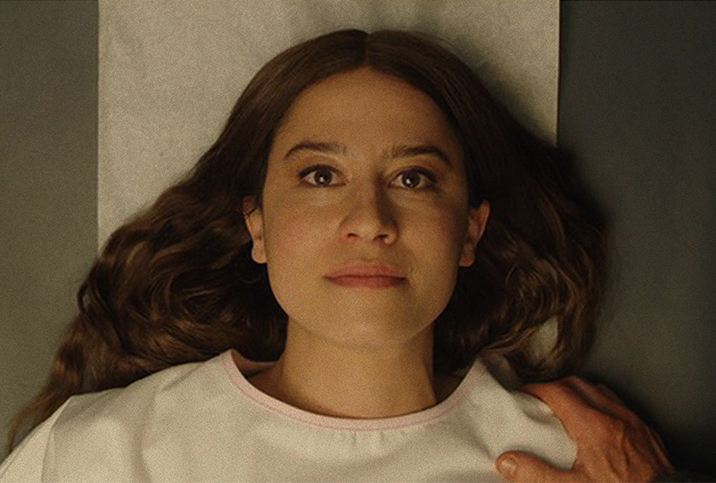
While more women are creating reproductive horrors, overall, these movies are still characterized by a male—and often misogynistic—psychology: Women are merely the bloodied vessel between man and the monster spawn coming after him; a story as old as the ancient Greek myth of Oedipus, but that ignores the more nuanced experience of the actual person experiencing the pregnancy.
Pregnancy can be horrifying, but in a complicated way men don't often grasp. The thoughts of a pregnant woman, even one eager to meet their child, can be panicky and alarming: You're beholden to a clinical medical industry that might not have your best interests at heart. Your kid could suffer debilitating health problems, hate you or worse, turn into a serial killer. While it fails on a technical level, "False Positive" at least speaks to these topics from a female-oriented perspective, taking the reproductive horror subgenre in a more nuanced direction.
Horror movies about pregnancy and childbirth aren't going anywhere: There are enormous phobias surrounding these experiences for both women and men, and horror is in the business of reflecting people's fears back at them. For all its failings, "False Positive" hits on something vivid, serious and very much alive in the culture: Pregnancy terror is much more common than we like to think. And again and again, we line up to watch it play out.












